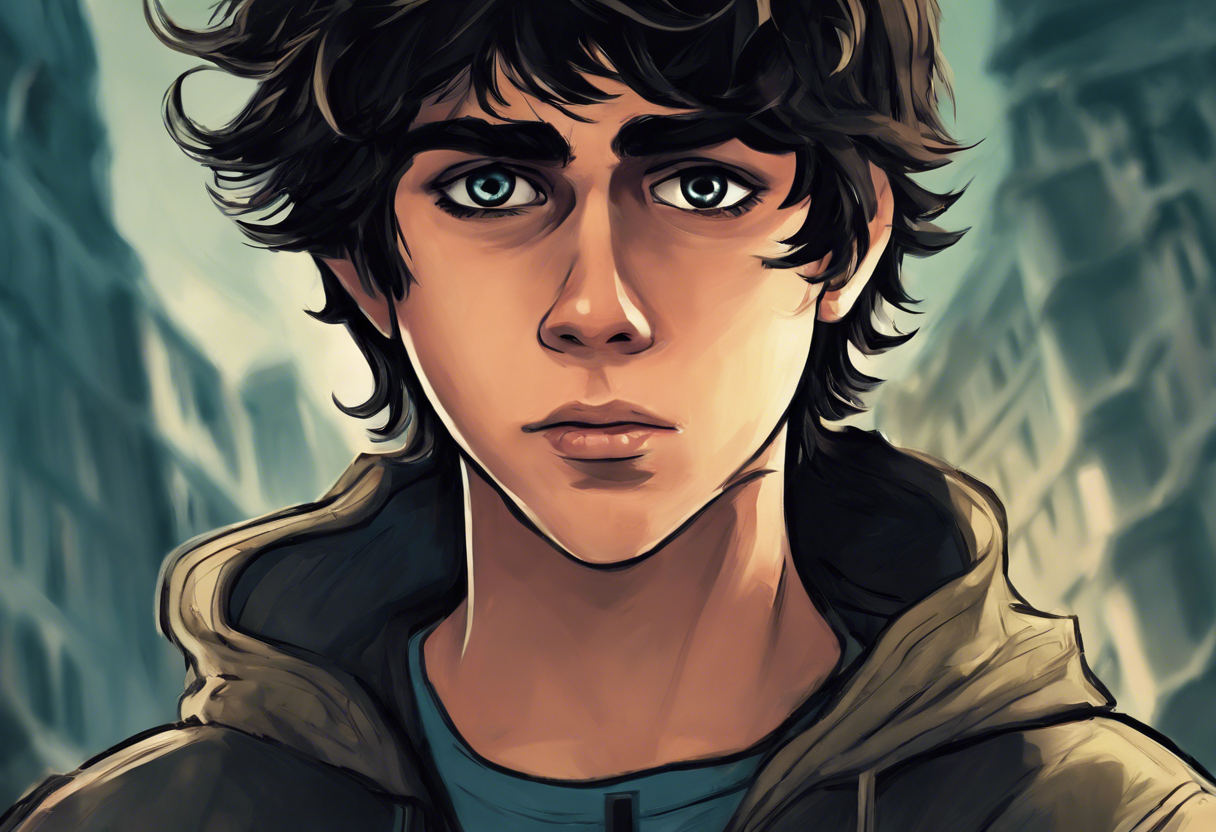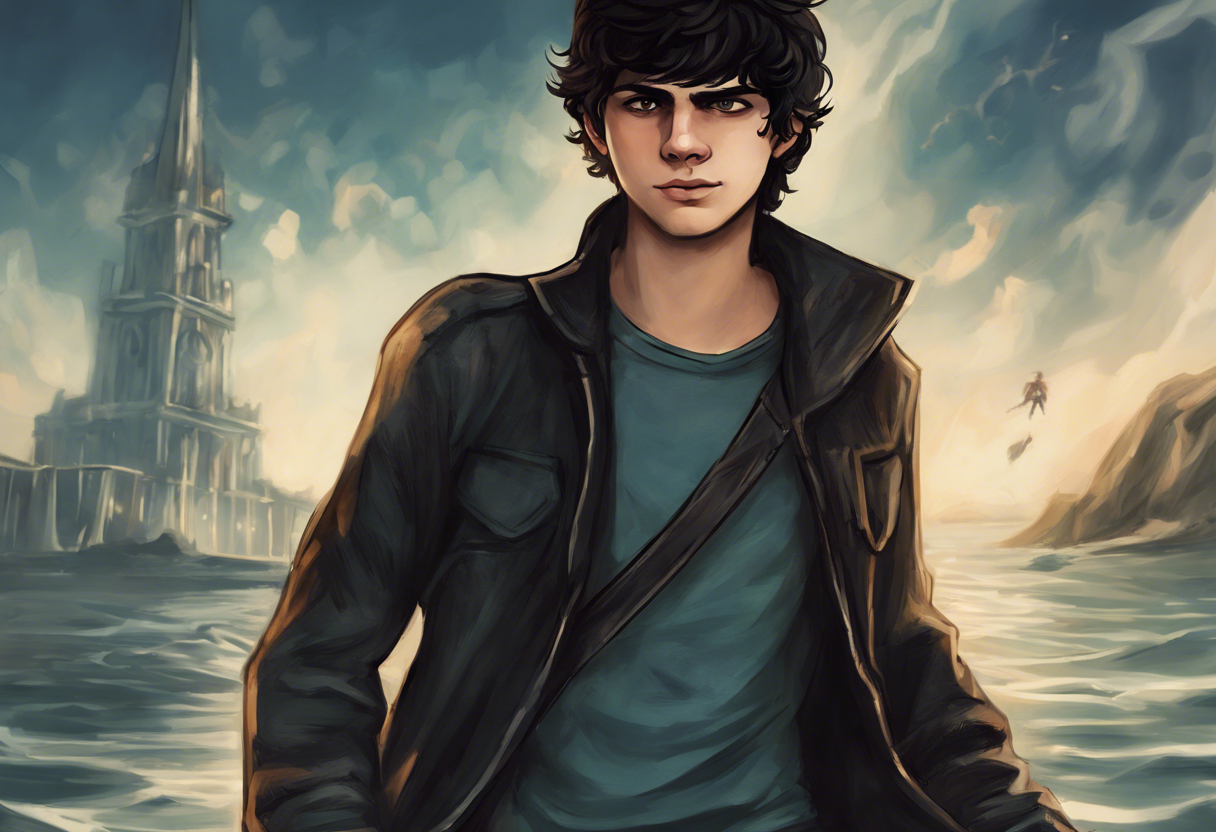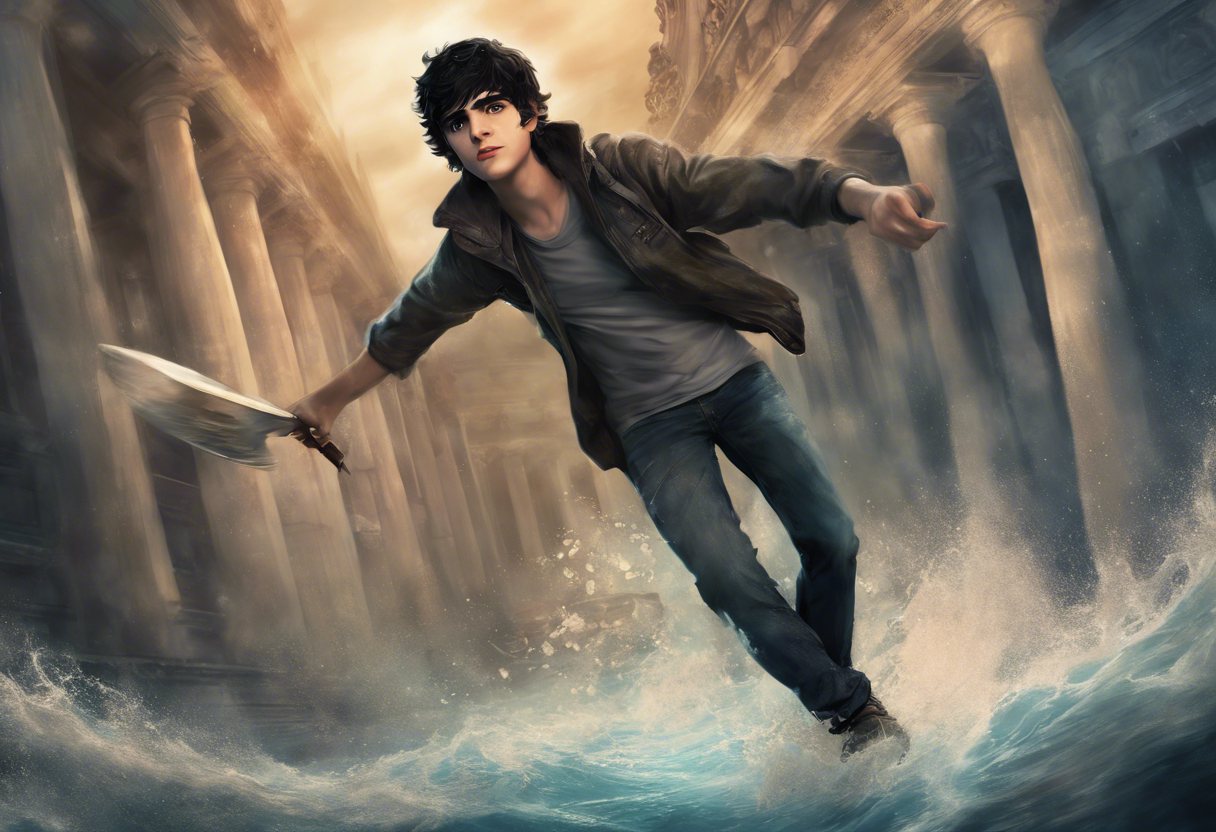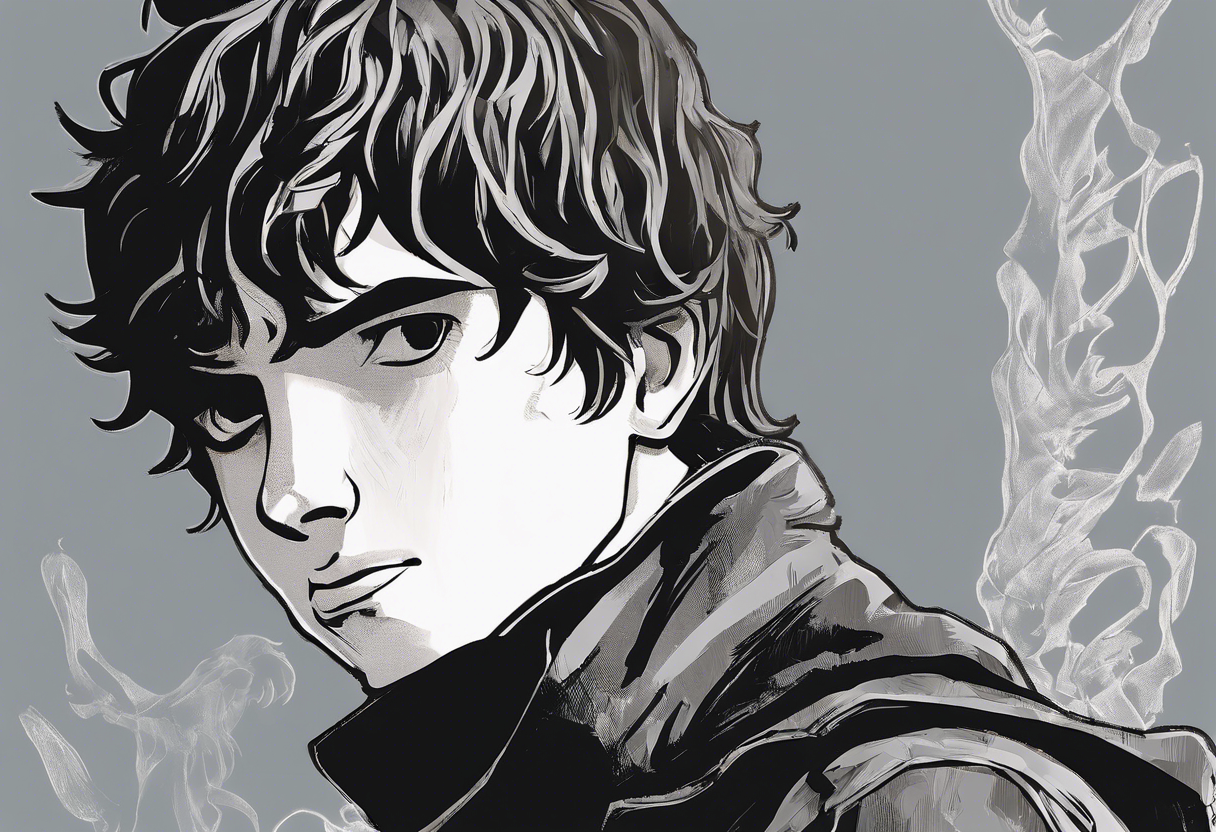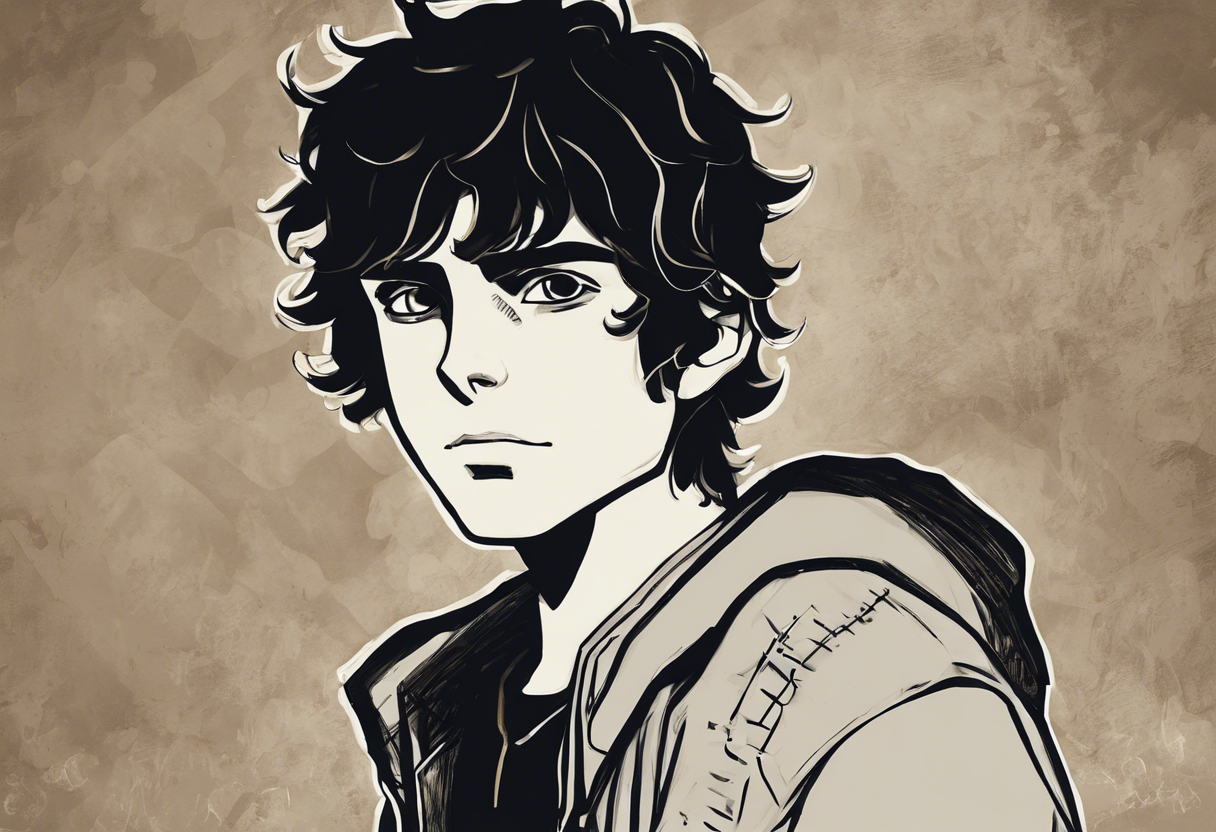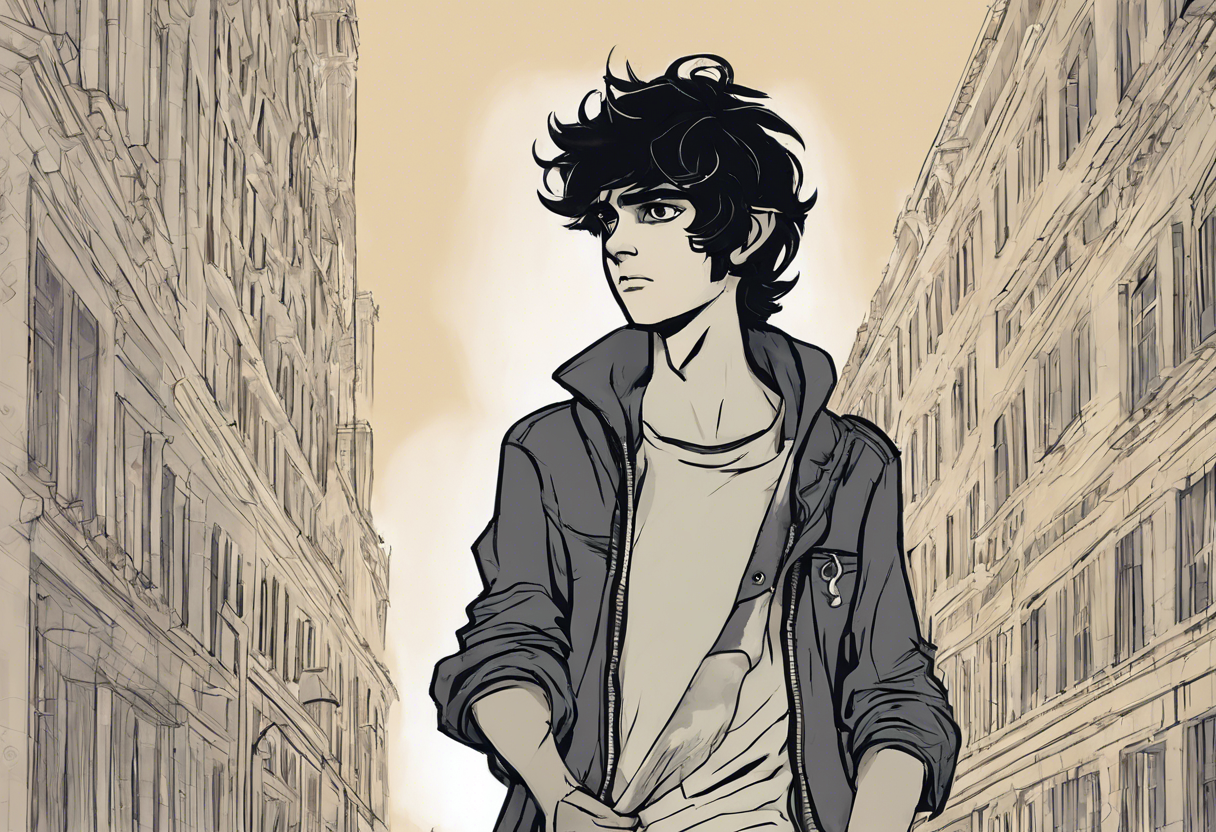Contents
Nico di Angelo: The Complex and Courageous Demigod of the Percy Jackson Series
Introduction
Nico di Angelo is a pivotal and complex character in Rick Riordan’s acclaimed series, Percy Jackson & the Olympians and its sequel, The Heroes of Olympus. As the son of Hades, the Greek god of the dead, Nico embodies a rich blend of mythological heritage and modern teenage struggles. Born during World War II, Nico’s life is marked by tragedy and isolation, yet he emerges as a powerful, determined, and deeply human character.
Nico’s origins are intertwined with the mythological world, but his story also resonates with broader literary traditions of the outsider and the hero’s journey. His character adds depth to the narrative, exploring themes of identity, loyalty, and the complexities of family relationships. This article will delve into Nico’s backstory, his role in the story, his character analysis, the themes and symbolism he represents, his cultural impact, critical reception, and his enduring legacy.
Role in the Story
Nico di Angelo is introduced in the Percy Jackson & the Olympians series as a young demigod who has been living in the Lotus Hotel and Casino, a place where time moves at a significantly slower pace. He is rescued by Percy Jackson, Thalia, Grover, and Annabeth, and brought to Camp Half-Blood, a summer camp for demigods[2].
Nico’s journey is fraught with challenges, particularly after the death of his sister, Bianca, which occurs under Percy’s watch. This event drives Nico to distance himself from Camp Half-Blood and its inhabitants. However, he later plays a crucial role in persuading his father, Hades, to join the fight against Kronos, significantly influencing the outcome of the battle[2].
In The Heroes of Olympus series, Nico’s role becomes even more central. He is the only person aware of the existence of both the Greek and Roman demigod camps. Nico’s actions are pivotal in several key events, including bringing Hazel Levesque back to life and participating in the quest to save the world from Gaea[2].
One of Nico’s most significant contributions is his bravery and strategic thinking. He often finds himself at the forefront of battles, using his ability to shadow-travel and command an army of the dead to aid his allies. His decision to allow Octavian’s death, based on his father’s advice that "some deaths should not be prevented," highlights his growing understanding of the complexities of life and death[1].
Character Analysis
Nico di Angelo is a multifaceted character whose personality and motivations evolve significantly throughout the series. Initially, he is portrayed as a cheerful and energetic young boy who is deeply caring towards his sister and enthusiastic about the card game Mythomagic[3].
However, as the series progresses, Nico’s experiences shape him into a more brooding and introspective character. He lives in the shadows, both literally and figuratively, and his relationship with his father is strained. Nico’s unrequited crush on Percy Jackson adds another layer of complexity to his character, reflecting his struggles with identity and acceptance[1].
Despite these challenges, Nico is incredibly brave and determined. He refuses to give up, even in the face of immense danger, and his ability to command the dead and shadow-travel makes him a formidable ally. His interactions with other characters, particularly his growing relationship with Will Solace, a son of Apollo, suggest a capacity for love and connection that contrasts with his darker abilities[1].
Nico’s strengths include his strategic thinking, bravery, and unwavering loyalty to those he cares about. However, his flaws, such as his tendency to isolate himself and his initial resentment towards others, make him a more relatable and human character. His development from a lonely, misunderstood boy to a confident and integral member of the demigod community is a compelling arc that resonates with readers.
Themes and Symbolism
Nico di Angelo embodies several key themes in the series, including the struggle with identity, the power of family and loyalty, and the complexities of life and death. As the son of Hades, Nico is inherently tied to the underworld and the concept of death, which he navigates with a maturity that belies his age.
The theme of identity is particularly significant for Nico, who must reconcile his dark heritage with his desire for connection and acceptance. His journey is symbolic of the outsider’s struggle to find their place within a larger community. Nico’s ability to shadow-travel and command the dead also symbolizes his connection to the unknown and the underworld, highlighting the duality of life and death[1].
Nico’s relationships, especially with his father and his friends, underscore the importance of family and loyalty. His decision to allow Octavian’s death, despite the moral ambiguity, reflects a deeper understanding of the world and his place in it, symbolizing the harsh realities that heroes must face[1].
Cultural Impact
Nico di Angelo has had a significant cultural impact, particularly within the young adult fantasy genre. His character has been praised for its complexity and depth, offering a nuanced portrayal of a gay teenager in a fantasy setting. This representation has been welcomed by fans and has contributed to the series’ broad appeal.
In adaptations and spin-offs, Nico’s character has been well-received, with fans appreciating his bravery, loyalty, and unique abilities. His influence on popular culture extends beyond the books, with Nico becoming a symbol of resilience and determination for many readers.
Critical Reception
Critics and audiences have praised Nico di Angelo for his compelling character arc and the depth he brings to the narrative. His portrayal as a gay character has been particularly lauded for its positive representation and integration into the story without being the sole defining trait of his character.
However, some critics have noted that Nico’s character development, while strong, sometimes takes a backseat to the main protagonists. Despite this, his contributions to the plot and his personal growth are widely acknowledged as significant to the overall story.
Legacy
Nico di Angelo’s enduring appeal lies in his relatable struggles, his bravery, and his unique place within the mythological world. He has inspired other works and character archetypes, particularly in the realm of young adult fantasy, where complex and diverse characters are increasingly valued.
Rick Riordan’s announcement of a new book, The Sun and the Star, with Nico as the protagonist, further underscores his importance in the series and the anticipation from fans for more of his story[5].
Nico di Angelo remains a beloved and integral part of the Percy Jackson universe, symbolizing the power of resilience, loyalty, and self-discovery.
References
- https://www.shmoop.com/study-guides/blood-of-olympus/nico.html
- https://nicodiangeloismyhero.weebly.com/explanations-who-is-nico.html
- https://aminoapps.com/c/halfblood/page/item/nico-di-angelo/X0dL_KR0tXIRDXBb1R7W3rZPVQnp21JxEla
- https://percyjacksonfandom.wordpress.com/mount-fandom/who-is/nico-di-angelo/
- https://fanlore.org/wiki/Nico_di_Angelo

